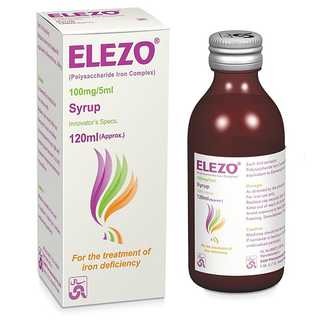Ertuvia-S Tablets 15Mg/100Mg
₨ 0
Uses
What is metformin used for?
Metformin is used to help lower blood sugar levels in people with type 2 diabetes.
Metformin may also be used for other conditions as determined by your healthcare provider.
How does metformin work (mechanism of action)?
Metformin works in a few different ways to help keep your blood glucose (sugar) from getting too high.
- Metformin decreases the amount of glucose your body absorbs from things you eat and drink.
- Metformin reduces the amount of glucose that your liver makes.
- Metformin also helps your body’s own insulin to work better. (Insulin is a hormone that helps your body use glucose as a source of energy.)
Description
Uses
What is metformin used for?
Metformin is used to help lower blood sugar levels in people with type 2 diabetes.
Metformin may also be used for other conditions as determined by your healthcare provider.
How does metformin work (mechanism of action)?
Metformin works in a few different ways to help keep your blood glucose (sugar) from getting too high.
- Metformin decreases the amount of glucose your body absorbs from things you eat and drink.
- Metformin reduces the amount of glucose that your liver makes.
- Metformin also helps your body’s own insulin to work better. (Insulin is a hormone that helps your body use glucose as a source of energy.)
How is metformin supplied (dosage forms)?
Metformin is available as Fortamet, Glumetza, and generic metformin in the following dosage forms that are taken by mouth.
How should I store metformin?
Metformin should be stored at room temperature, between 68 F to 77 F (20 C to 25 C). It can be exposed to temperatures between 59 F to 86 F (15 C to 30 C), for shorter periods of time, such as when transporting it. Store in a cool, dry place.
Side Effects
What are the most common side effects of metformin?
The most common side effects of metformin are listed below. Tell your healthcare provider if you have any of these side effects that bother you.
- Diarrhea
- Nausea or vomiting
- Gas or feeling bloated
- Feeling unusually weak or tired
- Stomach pain, upset stomach, heartburn
- Headache
- Constipation
- Change in how things taste or a metallic taste
- Infection in the nose or throat, sore throat, or common cold symptoms
There may be other side effects of metformin that are not listed here. Contact your healthcare provider if you think you are having a side effect of a medicine. In the U.S., you can report side effects to the FDA at www.fda.gov/medwatch or by calling 800-FDA-1088. In Canada, you can report side effects to Health Canada at www.health.gc.ca/medeffect or by calling 866-234-2345.
What are the serious side effects of metformin?
While less common, the most serious side effects of metformin are described below, along with what to do if they happen.
Severe Allergic Reactions. Metformin may cause allergic reactions, which can be serious. Stop using metformin and get help right away if you have any of the following symptoms of a serious allergic reaction.
- Breathing problems or wheezing
- Racing heart
- Fever or general ill feeling
- Swollen lymph nodes
- Swelling of the face, lips, mouth, tongue, or throat
- Trouble swallowing or throat tightness
- Itching, skin rash, or pale red bumps on the skin called hives
- Nausea or vomiting
- Dizziness, feeling lightheaded, or fainting
- Stomach cramps
- Joint pain
Lactic Acidosis. Metformin may cause lactic acidosis (a buildup of lactic acid in your blood), which can be serious. Stop using metformin and get help right away if you have any of the following symptoms of lactic acidosis.
- General ill feeling
- Muscle pain
- Difficulty breathing
- Drowsiness
- Stomach pain
Vitamin B12 Deficiency. Metformin may cause you to have low levels of vitamin B12 in your blood (possibly by decreasing the amount of vitamin B12 your body absorbs from things you eat or drink), which may lead to anemia (low levels of red blood cells). Your healthcare provider will likely use lab tests to check your vitamin B12 levels and for anemia. Tell your healthcare provider right away if you have any of the following symptoms of anemia.
- Unusual weakness or tiredness
- Cold hands and feet
- Fast or abnormal heartbeat
- Pale or yellowish skin
- Dizziness, lightheadedness, or feeling like you are about to pass out
- Shortness of breath
Low Blood Sugar (Hypoglycemia). When metformin is used with insulin or other medicines that lower your blood sugar by increasing your body’s own insulin levels, it can cause hypoglycemia (low blood sugar). The doses of the other medicines may need to be changed when taken with metformin. Call your healthcare provider right away if you have any of the following symptoms of low blood sugar.
- Headache
- Crankiness or anxiety
- Hunger
- Dizziness or confusion
- Blurry vision
- Slurred speech
- Sweating
- Feeling jittery or shakiness
- Fast heartbeat
- Seizures
Warnings & Precautions
Who should not use metformin?
Allergies to Ingredients. People who are allergic to any of the following should not take metformin.
- Metformin
- Fortamet
- Glumetza
- Any of the ingredients in the specific product dispensed
Your pharmacist can tell you all of the ingredients in the specific metformin products they stock.
Kidney Problems. Metformin should not be used if your kidneys are not working as well as they should be. If there is a concern about the health of your kidneys, your healthcare provider may do tests to determine if they are working well enough to take this medicine.
Metabolic Acidosis, Including Diabetic Ketoacidosis. Metformin should not be used in people with acute or chronic metabolic acidosis (when the chemical balance of acids and bases in your blood gets thrown off). Tell your healthcare provider if you have a history of metabolic acidosis or diabetic ketoacidosis.
What should I know about metformin before using it?
Do not take metformin unless it has been prescribed to you by a healthcare provider. Take it as prescribed.






Reviews
There are no reviews yet.